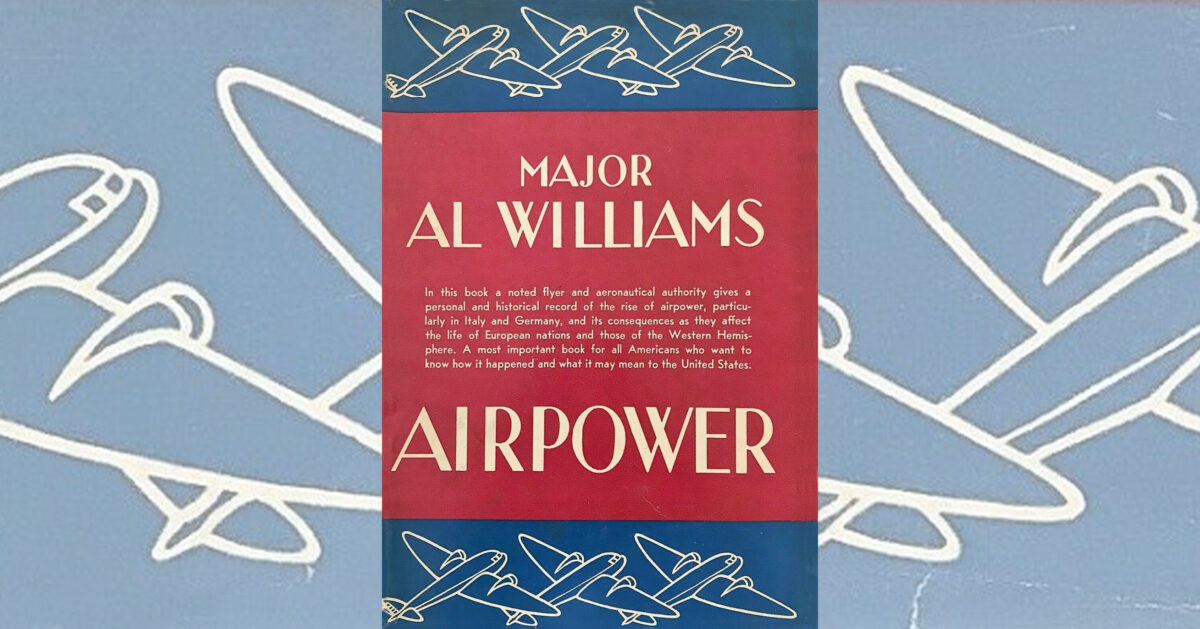Airpower by Major Al Williams
Major Alford J. Williams is most often remembered as a dashing U.S. Navy and Marine aviator, a pioneering test pilot and record-setting racer who enlivened airshows during the Golden Age and beyond with performances in his bright-orange Curtiss and Grumman Gulfhawks. Yet his talents were not limited to showmanship in the sky.
A tireless aviation promoter, Williams churned out newspaper columns extolling the virtues of flight. He also wrote a rambling appraisal of the rise of airpower as World War II unfolded, including his firsthand observations of European air forces from 1936 to 1940. Thanks to his friendship with World War I ace Ernst Udet, Germany opened up its airfields and aircraft factories during his visits.
Led by what Williams termed the Hitler-Göring “gangster clique,” Germany had plunged headlong into the development of a widely disbursed aviation infrastructure geared to produce advanced warplanes. In 1938, after piloting the Messerschmitt Bf-109, Williams called it the finest airplane he had ever flown.
In an analysis of the Spanish Civil War’s air battles, Williams laid out the enduring principles of air warfare, noting the chief lesson learned was that “dominance of the air is essential to victory of the ground troops.” Also, well before bombers of the U.S. Eighth Air Force learned the hard way that fighter escort was essential, Williams explained the efficacy of the new maneuver warfare, in which ground and air components moved with lightning speed. He described how the German blitzkrieg easily overran an ill-prepared Poland and a delusional France that had bet on the false promise of the Maginot Line. The book hit the shelves just as the Battle of Britain was about to begin.
Regrettably, Williams often veered off on disjointed tangents. His fierce anticommunism excused the support Generalissimo Francisco Franco received from Nazi Germany and Fascist Italy on the premise that anything was fair to “clear the Reds” out of Spain. Such harsh opinions detracted from his otherwise technically accurate review of air combat up to and including the early stages of WWII.
Williams further undermined his credibility by ranting against involvement in the expanding war. Although he called for a rapid increase in the size and quality of the American air arm, he envisaged it only to protect the homeland from European invaders. If Williams had confined his writing to his area of expertise instead of venturing into the political realm, his book might have achieved a status akin to Alexander de Seversky’s 1942 classic Victory Through Air Power.
Originally published in the January 2015 issue of Aviation History. To subscribe, click here.





